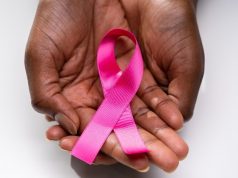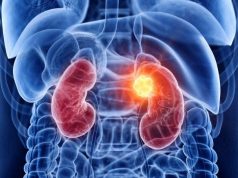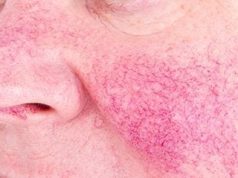Breast cancer risk significantly lower at median follow-up of 131 months; effect continued after treatment
TUESDAY, Dec. 17, 2019 (HealthDay News) — Anastrozole is associated with a long-term reduction in breast cancer risk, even after treatment, according to a study published online Dec. 12 in The Lancet to coincide with the annual San Antonio Breast Cancer Symposium, held from Dec. 10 to 14 in Texas.
Jack Cuzick, Ph.D., from Queen Mary University London, and colleagues recruited 3,864 women and randomly assigned them to receive either anastrozole (1,920 women) or placebo (1,944 women) daily for five years.
The researchers observed a significant reduction in breast cancer with anastrozole after a median follow-up of 131 months (85 versus 165 cases; hazard ratio [HR], 0.51). A larger reduction was seen in the first five years (35 versus 89 cases; HR, 0.39); the reduction was still significant after five years (50 versus 76 new cases; HR, 0.64) and did not differ significantly from the first five years. There was also a reduction noted in invasive estrogen receptor-positive breast cancer (HR, 0.46); the significant effect continued after treatment. A significant reduction was seen in ductal carcinoma in situ (HR, 0.41), especially in estrogen receptor-positive participants (HR, 0.22). No significant difference was seen between the groups in deaths overall (two anastrozole versus three placebo).
“It is exciting to see that anastrozole has a continued impact on breast cancer incidence even after stopping treatment, as this strengthens the case for its use as a breast cancer prevention therapy,” Cuzick said in a statement.
Several authors disclosed financial ties to pharmaceutical companies, including AstraZeneca, which manufactures anastrozole.
Abstract/Full Text
More Information
Copyright © 2019 HealthDay. All rights reserved.








